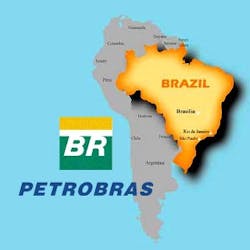Oil recycling process set for Petrobras's REFAP refinery in South Brazil
Brazilian energy company Petrobras has contracted Veolia Water Solutions & Technologies Brazil and Veolia Water Americas to design, build, own and operate a processing unit that will recycle oil back into refining production processes.
The oil-bearing secondary material processing unit will be delivered to the Alberto Pasqualini REFAP Refinery located in Porto Alegre, South Brazil, which is the sixth largest of Petrobras’ refineries with a capacity of 200,000 barrels/day.
The recycled oil-bearing materials from the refinery’s crude processing streams will be used in the refinery’s coker unit and are anticipated to result in approximately $1.5 million in annual cost savings.
Expected to begin operations in November 2013, when fully operational the unit is anticipated to process approximately 6,200 barrels of oil-bearing material each month, more than 74,000 barrels per year.
Veolia Water Americas said it services more than 50 North American refineries that process approximately 30,000 barrels of the material every day.
###
About the Author

Tom Freyberg
Tom Freyberg is an experienced environmental journalist, having worked across a variety of business-to-business titles. Since joining Pennwell in 2010, he has been influential in developing international partnerships for the water brand and has overseen digital developments, including 360 degree video case studies. He has interviewed high level figures, including NYSE CEO’s and Environmental Ministers. A known figure in the global water industry, Tom has chaired and spoken at conferences around the world, from Helsinki, to London and Singapore. An English graduate from Exeter University, Tom completed his PMA journalism training in London.
